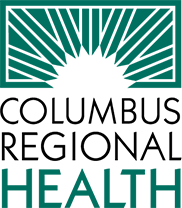COVID-19 BOOSTER & THIRD DOSE VACCINE FREQUENTLY ASKED QUESTIONS
If you're six months, or more, past the second shot of your primary COVID-19 vaccine series, or you're two months, or more, past the single-dose shot, you're eligible for a booster. The COVID-19 vaccine is now available in all three vaccines available in the United States. The FDA recently approved booster doses of Moderna and Johnson & Johnson vaccines, both of which were also backed by the Centers for Disease Control (CDC), to add to the booster option already available by Pfizer. Because of the continued spread of COVID-19 and the highly contagious Delta variant, booster doses are recommended to prevent waning immunity in vaccinated individuals.
What’s the difference between an additional (third) dose and a booster dose?
A “booster dose” is another dose of a vaccine that is given to someone who built enough protection after initial vaccination; however, that protection has decreased over time (also called waning immunity).
Sometimes those with compromised immune systems do not build adequate or lasting protection from the virus, especially variants. When this happens, getting another dose of the vaccine can sometimes help them build more protection against infection and disease. Therefore, the CDC recommends moderately to severely immunocompromised people consider receiving an additional (third) dose of an mRNA COVID-19 vaccine (Pfizer or Moderna) at least 28 days after the completion of the initial two-dose series. This option is currently approved and available to those individuals. Physicians should notify their patients that meet this criteria and likewise, patients who are wondering if this applies to them, should discuss a third dose with their primary care office.
Who should get a booster shot and when?
Anyone age 18 or older who received the Johnson & Johnson vaccine is recommended to receive a booster anytime at least two months after their first vaccination. Anyone age 16 and up who received the Pfizer or 18 and up who received Moderna for their first round of vaccination should receive a booster shot at least six months after their first series.
Can I get any type of COVID-19 vaccine for the booster?
Yes! The FDA and CDC endorsed the safety of mixing vaccine type for the application of a booster shot. Eligible individuals may choose which vaccine they receive as a booster dose. Some people may have a preference for the vaccine type that they originally received, and others may prefer to get a different booster. CDC’s recommendations now allow for this type of mix and match dosing for booster shots. Please note that the Moderna booster is a 1/2 dose.
Who should get a third dose of the vaccine?
Currently, individuals with moderately to severely compromised immune systems are recommended for a third dose of COVID-19 vaccine. This includes people receiving treatment for cancer, people taking medications that weaken the immune systems, organ or stem cell transplant recipients, individuals with advanced or untreated HIV infection, and other conditions. If you are unsure if you are recommended for a third dose, talk with your health care provider. The third dose of COVID-19 vaccine can be given anytime 28 days after receiving the second dose.
Can I get any type of COVID-19 vaccine for the third dose?
No. You should receive the same brand of vaccine you received for your first and second doses, either Moderna or Pfizer. Why? This is because the third-dose is used to establish immunity where it may not have been built prior in immunosuppressed individuals. A booster shot is to reinforce immunity.
Columbus Regional Health physician practices and our vaccine clinic are currently administering the Pfizer vaccine, booster and third dose. You can also find a site nearby and register to receive your COVID-19 vaccine, booster or third shot by visiting www.ourshot.in.gov.
Learn more and get the most up-to-date information at crh.org/virus.

CRH News
-
Final Two CRH Practices Move to NexusPark
Apr 18, 2024, 12:36 PM by DeClue, A.CRH at NexusPark officially opened in late January, and more than 15 provider practices and services have relocated to the space in the first quarter of 2024.Full story -
Wound Center Receives National Awards
Apr 3, 2024, 15:21 PM by DeClue, A.The Wound Center achieved outstanding clinical outcomes for twelve consecutive months, including a patient satisfaction rate higher than 92 percentFull story -
CRH conducting independent public health survey
Mar 26, 2024, 12:41 PM by DeClue, A.Columbus Regional Health is conducting a Health Status Survey by telephone and online from March through May.Full story -
Columbus Regional Health offers new online health portal for expectant parents
Mar 25, 2024, 14:21 PM by DeClue, A.With CRH’s new My Pregnancy Journey, patients can use their computers or mobile devices to review digital prenatal education from a trusted source and track important decisions and tasks that need to happen at specific pregnancy milestones.Full story -
Additional Medical Practices Move to NexusPark
Mar 25, 2024, 11:24 AM by DeClue, A.More practices and services relocate to NexusPark facility.Full story -
Eclipse office hours for CRH-affiliated services
Mar 21, 2024, 14:01 PM by Laker, J.Office hours for CRH-affiliated practices and service lines for the April 8, 2024, Total Solar Eclipse.Full story

